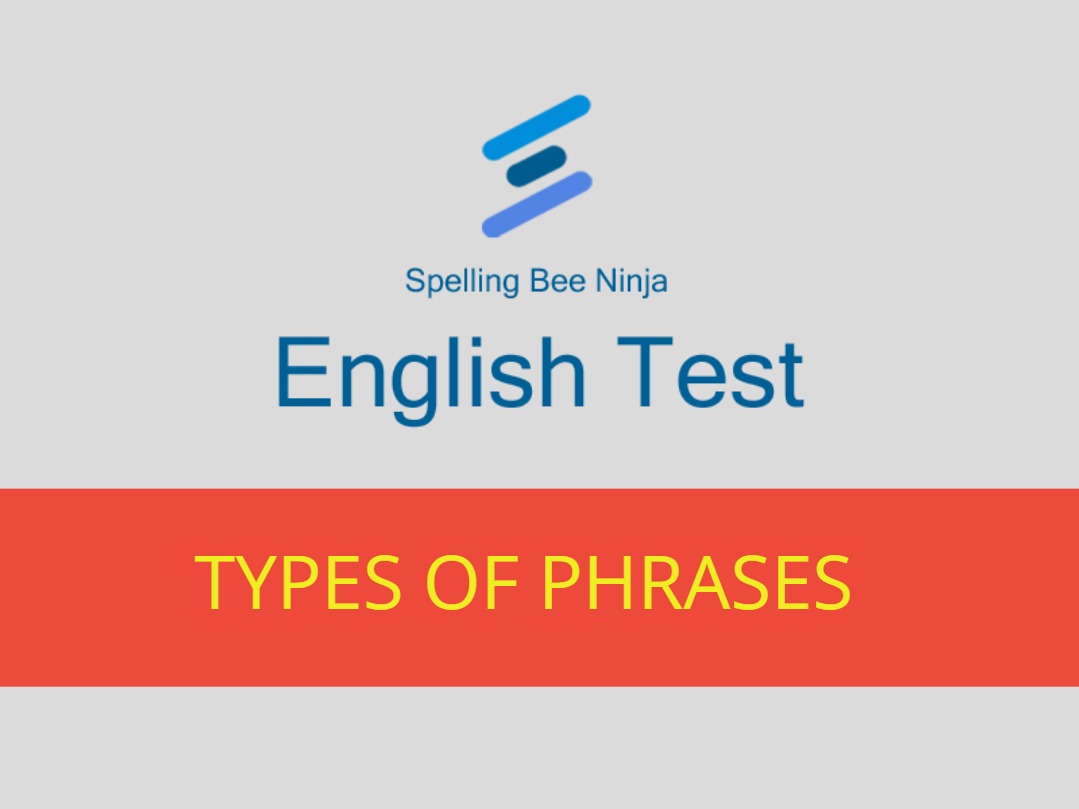In English grammar, phrases are essential tools for structuring sentences, enhancing clarity, and adding depth to writing. Whether you’re speaking casually or writing an academic essay, your ability to use and recognize phrases correctly is a strong indicator of language proficiency. This quiz is designed to help you reinforce your understanding of five major phrase types: noun phrases, verb phrases, prepositional phrases, gerund phrases, and infinitive phrases.
Let’s briefly review these types:
A noun phrase functions like a noun in a sentence. It includes a main noun and any words that modify or describe it. For example: “the excited children.”
A verb phrase includes the main verb and one or more auxiliary (helping) verbs, like: “has been sleeping.”
A prepositional phrase begins with a preposition and ends with a noun or pronoun. It often shows direction, time, or location: “under the stairs.”
A gerund phrase starts with a verb in the “-ing” form and acts as a noun: “Swimming in the sea.”
An infinitive phrase starts with “to” followed by the base form of a verb, and it can act as a noun, adjective, or adverb: “to learn English quickly.”
For the full overview of these type of phrases check the full lesson here
In this quiz, you’ll find 10 multiple-choice questions. Each one presents a sentence or phrase for you to analyze. You’ll be asked to identify the type of phrase used or choose the most appropriate phrase to complete a sentence.
Only one option is correct per question, and after each question, you’ll find a clear explanation of the correct answer so you can understand why it’s right — and why the others are not.
The goal isn’t just to get a perfect score — it’s to help you think grammatically and gain confidence using phrases correctly in your own writing and speech. Let’s begin!
- 🎓 English Test – Parts of Speech
- 🎓 English Test – The Future Perfect Continuous Tense in English
- 🎓 English Test – Pronouns in English
- 🎓 English Test – Sentence Structure
- 🎓 English Test – Future Perfect Tense
- 🎓 English Test – Future Continuous Tense
- 🎓 English Test – Future Simple Tense
- 🎓 English Test – Past Perfect Continuous Tense
- 🎓 English Test – Past Perfect Tense
- 🎓 English Test – Past Continuous Tense
- 🎓 English Test – Present Simple Tense
- 🎓 English Test – Past Simple Tense
- 🎓 English Test – Present Perfect Continuous Tense
- 🎓 English Test – Present Perfect Tense
- 🎓 English Test – Present Continuous Tense
- 🎓 English Test – The 12 Tenses in the English Language
- 🎓 English Test – Modal Verbs
- 🎓 English Test – Could, should and ought
- 🎓 English Test – Will vs Shall
- 🎓 English Test – What vs Which
- 🎓 English Test – Suffixes
- 🎓 English Test – Prefixes
- 🎓 English Test – Pronunciation
- 🎓 English Test – Misspelled Words
- 🎓 English Test – Writing an Essay
- 🎓 English Test – Writing an Email
- 🎓 English Test – Idiomatic Expressions
- 🎓 English Test – Business English
- 🎓 English Test – Writing a Letter
- 🎓 English Test – Writing Numbers
- 🎓 English Test – Adjectives
- 🎓 English Test – ESL Vocabulary Essentials – Intermediate
- 🎓 English Test – ESL Vocabulary Essentials – Advanced
- 🎓 English Test – Formal vs. Informal Language
- 🎓 English Test – ESL Vocabulary Essentials – Beginner
- 🎓 English Test – English Fluency Check
- 🎓 English Test – Mastering Imperatives in English
- 🎓 English Test – Cultural Awareness
- 🎓 English Test – Difficult Words
- 🎓 English Test – Comparative and Superlative Adjectives
- 🎓 English Test – Types of Phrases
- 🎓 English Test – Conditionals
- 🎓 English Test – Types of Adverbs
- 🎓 English Test – Clauses
- 🎓 English Test – Homophones
- 🎓 English Test – Possessives
- 🎓 English Test – Noun Types
- 🎓 English Test – Gerunds and Infinitives
- 🎓 English Test – Question Formation in English
- 🎓 English Test – Understanding Common Sentence Errors
- 🎓 English Test – Direct and Indirect Speech
- 🎓 English Test – Conjunction Words
- 🎓 English Test – Tricky Words
- 🎓 English Test – Prepositions
- 🎓 English Test – Adverbs
- 🎓 English Test – Active and Passive Voice
- 🎓 English Test – How to use Punctuation
- 🎓 English Test – An overview of English tenses
- 🎓 English Test – How to use Articles in English


